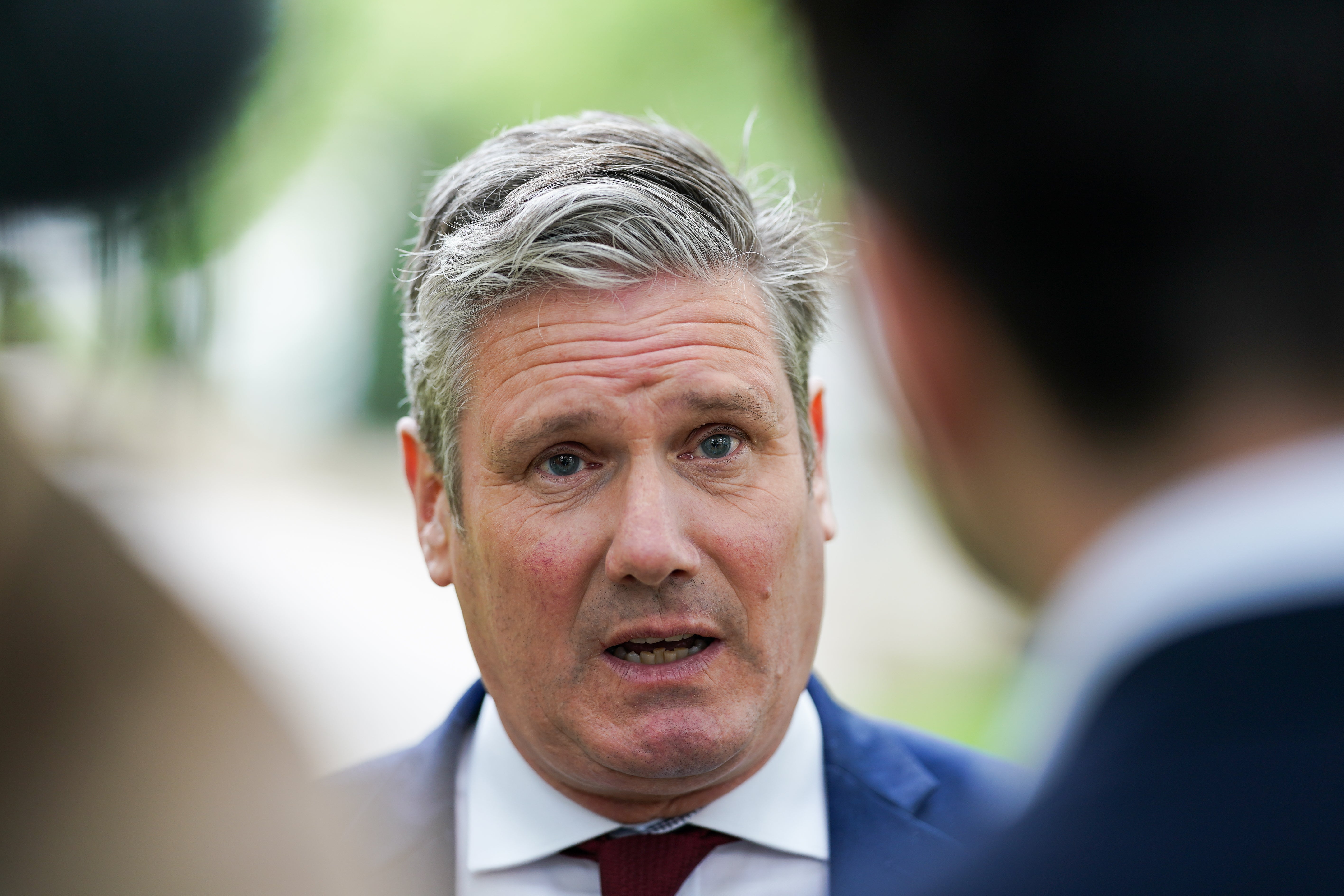Your support helps us to tell the story
From reproductive rights to climate change to Big Tech, The Independent is on the ground when the story is developing. Whether it's investigating the financials of Elon Musk's pro-Trump PAC or producing our latest documentary, 'The A Word', which shines a light on the American women fighting for reproductive rights, we know how important it is to parse out the facts from the messaging.
At such a critical moment in US history, we need reporters on the ground. Your donation allows us to keep sending journalists to speak to both sides of the story.
The Independent is trusted by Americans across the entire political spectrum. And unlike many other quality news outlets, we choose not to lock Americans out of our reporting and analysis with paywalls. We believe quality journalism should be available to everyone, paid for by those who can afford it.
Your support makes all the difference.Keir Starmer has ruled out striking "any” agreement with the Liberal Democrats after the next general election.
The Labour leader had previously ruled out an electoral pact or coalition with the Scottish National Party, saying there would be "no deal going into the general election and no deal other side".
But he had not previously explicitly ruled out working with the Liberal Democrats, either as part of a coalition or under a looser supply and confidence arrangement.
Asked whether he had ruled out a coalition with the Liberal Democrats, he told the Bloomberg news agency on Monday: "Yes, ruled out a coalition with anyone. We want a Labour majority."
In response to a follow-up question on whether he would rule out a supply-and-confidence arrangement, he said: "I'm ruling out any arrangement."
Under a coalition agreement, MPs from both parties take jobs as government ministers, such as in the 2010-2015 Cameron government.
Under a supply and confidence arrangement, a minority Labour government would be supported by the Lib Dems on major votes to keep it in power, in exchange for policy concessions.
The arrangement is relatively common around the world, with Canada's liberal government now propped up by the left-of-centre NDP under such a deal.
The UK most recently saw such an arrangement between the Conservatives and DUP in 2017.
The Lib Dems themselves have themselves strongly hinted they would be open to working with Labour, saying they want to oust the Conservatives – though deputy leader Daisy Cooper said in May it was "too early" to talk specifics.
While Labour has opened up a consistent poll lead over the Conservatives in recent months, it may not be able to win a majority on its own because of the SNP's dominance in Scotland.
The liberals are thought to want electoral reform – a longstanding priority for the party – as the price for supporting a minority government.
The Liberal Democrats have polled as high as 15 per cent in some recent surveys and have pulled off a string of stunning by-election successes in Conservative-held seats in the south of England.
But the party has struggled to gain traction nationally since going into coalition with the Tories in 2010, which obliterated their levels of support. Despite a strong set of European Parliament elections in 2019 the party failed to capitalise in the general election later that year.

Join our commenting forum
Join thought-provoking conversations, follow other Independent readers and see their replies
Comments